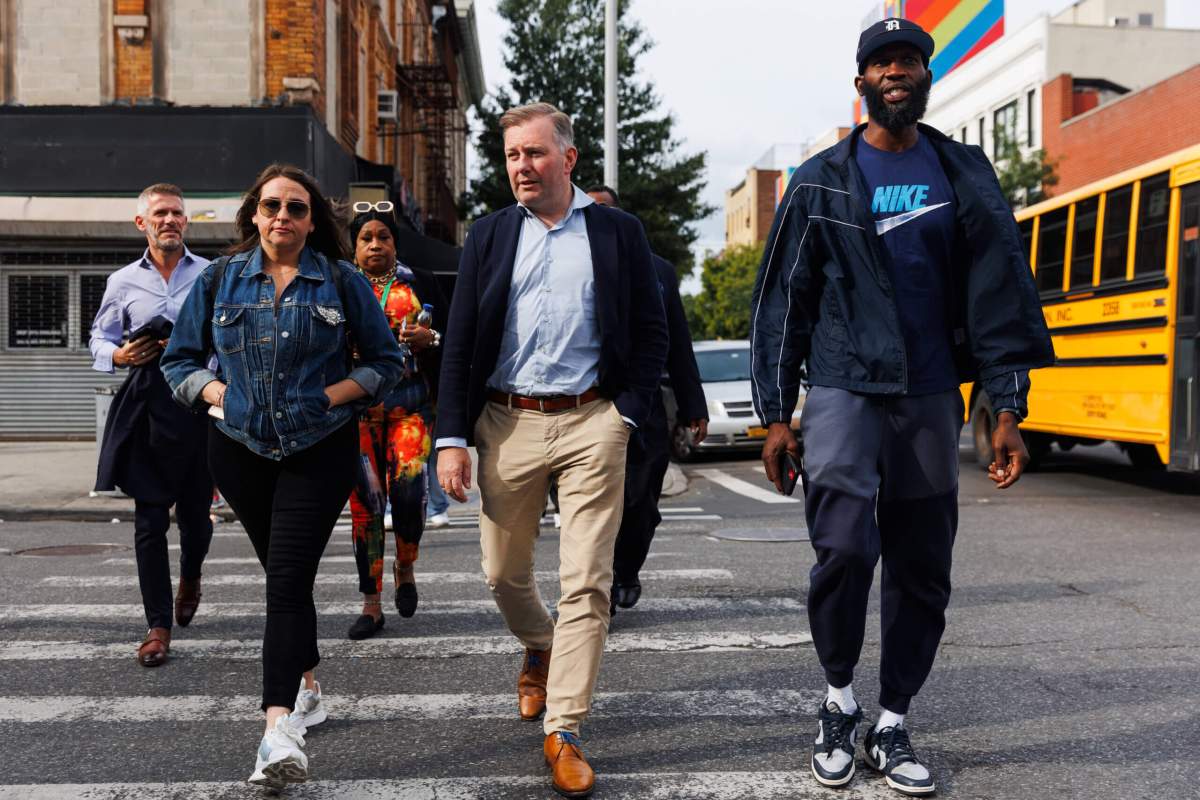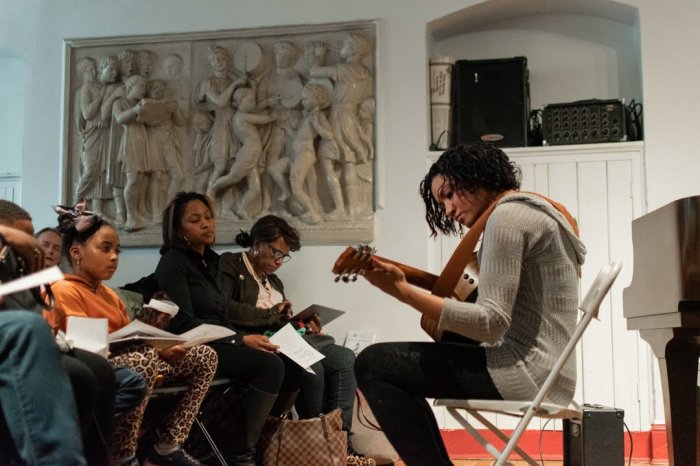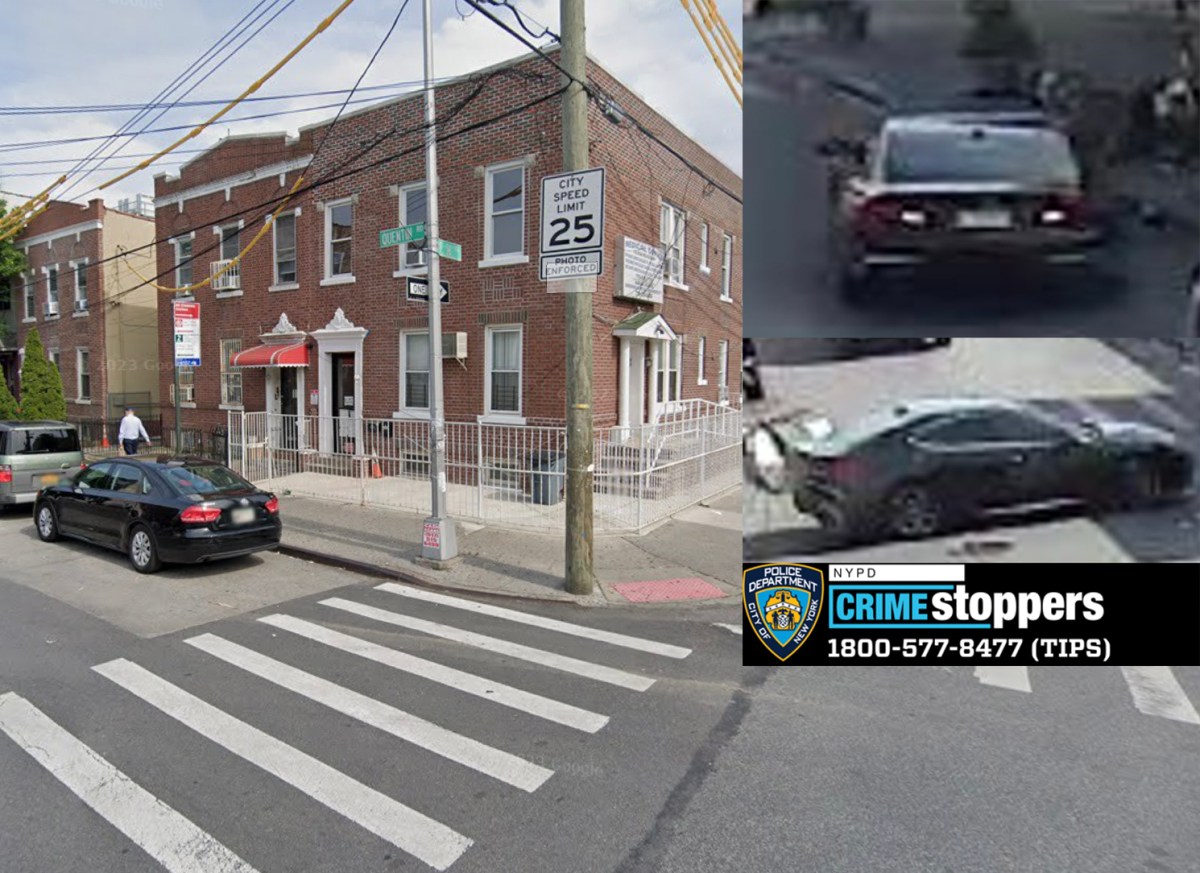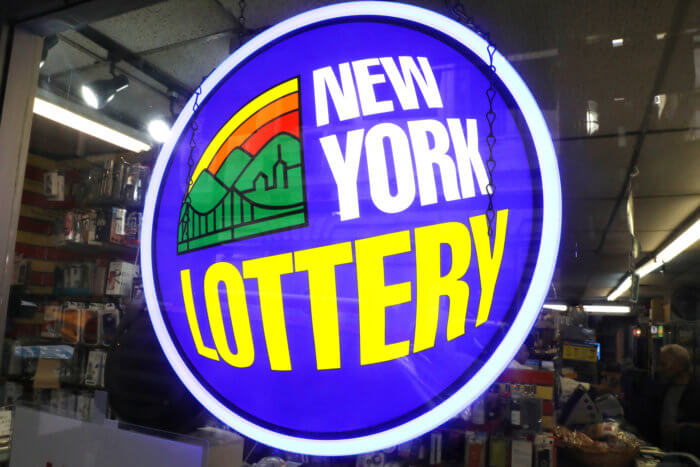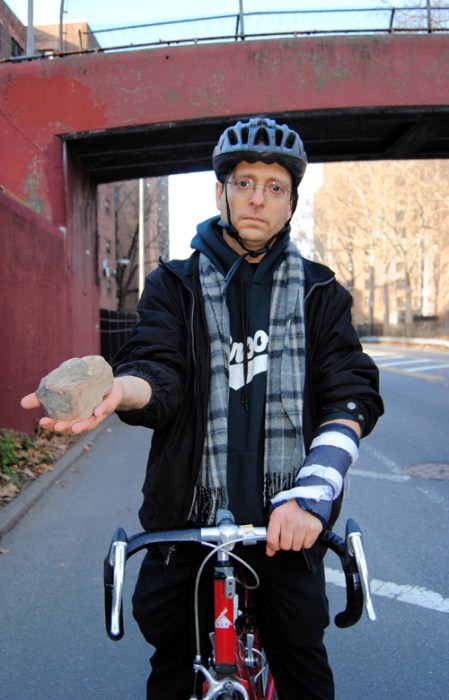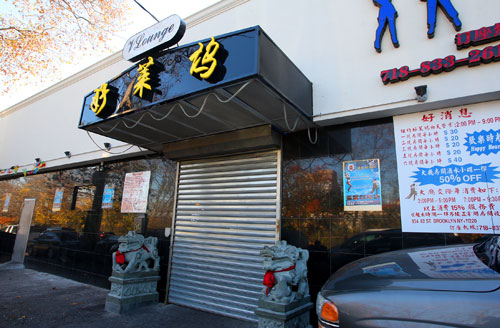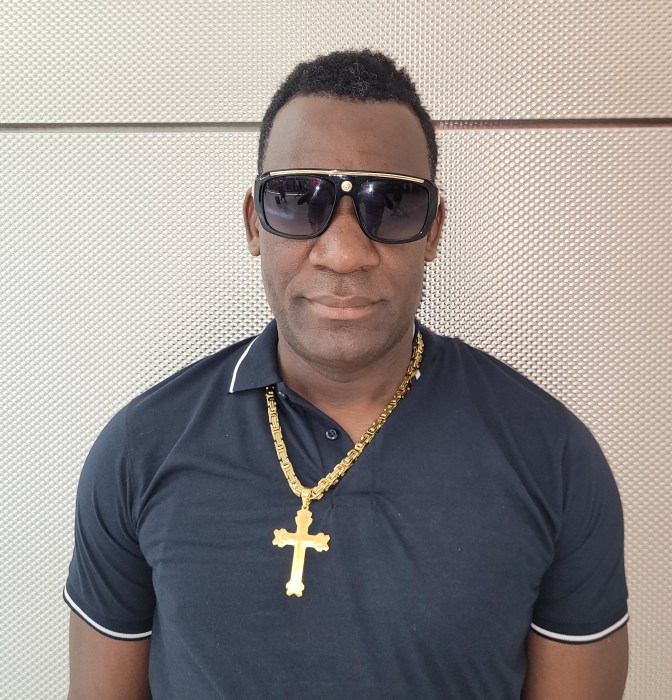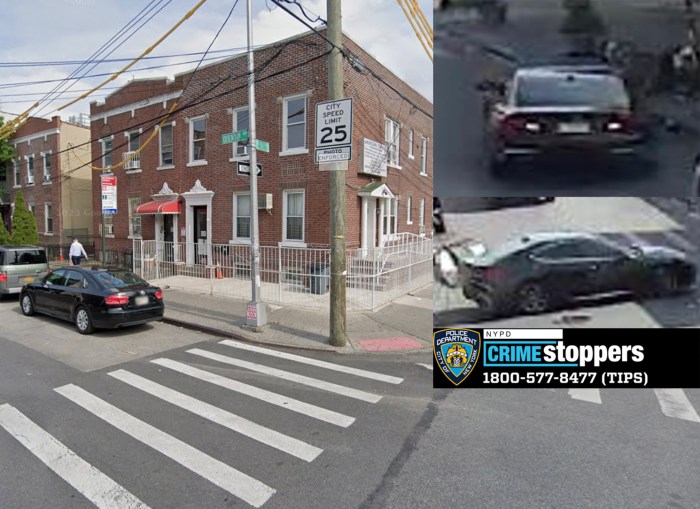Alternatives to traditional policing and law enforcement in Brownsville drew international attention last week when Alexander Vandersmissen, mayor of the Belgian city of Mechelen, visited Assembly Member Latrice Walker and violence interrupters from the Brownsville Safety Alliance to discuss their unorthodox, community-based crime prevention tactics.
Vandersmissen, who is a part of the Belgian delegation attending the UN General Assembly, heard about the organization’s work to develop community-based alternatives to traditional policing ahead of his trip to New York City.
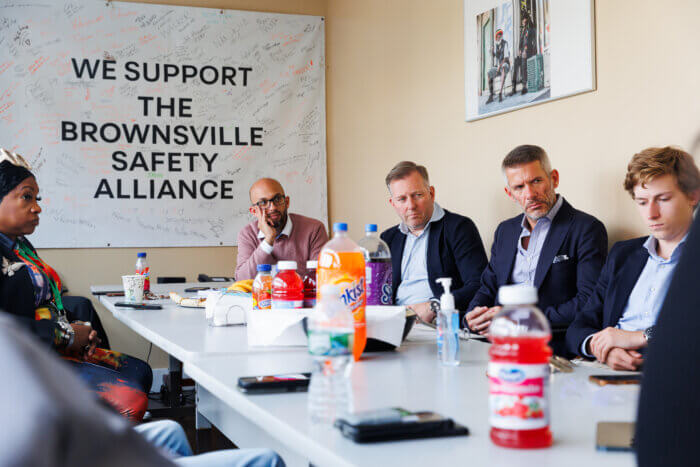
“[I thought] I will have to visit to hear how people here in this community are working around safety, around social welfare and welfare in general, so I asked if we could meet up and listen to the project,” Vandersmissen said.
The mayor sat down with Walker and community leaders from the BSA — including Dana Rachlin, founder of We Build the Block, and Dushoun Almond, who runs Brownsville in Violence Out — to learn about the history of Brownsville, the neighborhood’s experience with stigmas and social pressure, and their relationship with the police.
The BSA is working to replace patrolling police officers in the neighborhood with with community groups sent in to mediate potentially-violent situations and quality of life issues. The team also participates in resource fairs that connect residents with needed healthcare, housing, and employment services.
The team coordinated with the 73rd Precinct, the police station responsible for patrolling the neighborhood, to pilot a strategy that replaces officers with trained community partners.
We Build the Block, New York City-based organization focused on the future of public safety, leads the group in rerouting some 911 and 311 calls, and then taps in partners from the Crisis Management System to intervene, rather than sending police. At the same time, members of local organizations like the Brownsville Think Tank Matters and Brownsville In Violence Out spend their time keeping an eye out on the ground, stepping in when they see a violent situation brewing.
According to the New York Times, BSA members have stopped fights, prevented shoplifting, and even convinced an armed man preparing to rob a bodega to stand down. The group hopes to reduce over-policing in neighborhoods like Brownsville while building community and keeping their neighbors safe.
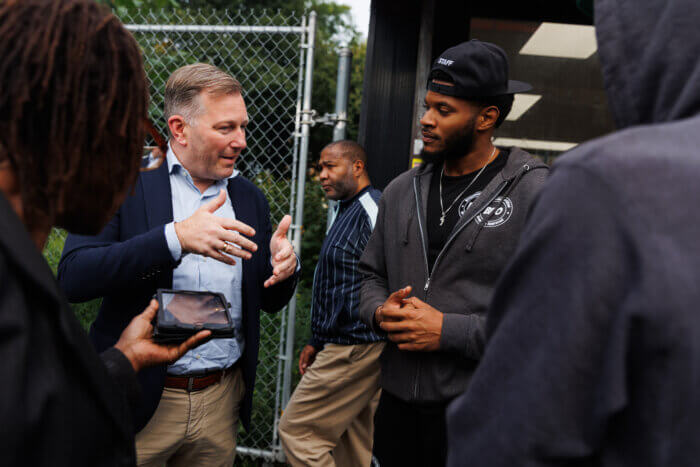
Vandersmissen called the approach “out of the box,” but interesting. He plans on looking into BSA data and discussing with Belgian leaders what it would look like to introduce alternative policing to Mechelen.
“I think it’s something that’s interesting, for me it’s totally new, but we have a tradition certainly in my city to get the community involved in their own community,” he said. “This goes beyond that.”
Crime in Mechelen is largely drug-related, Vandersmissen said. Antwerp, the largest city in Belgium, has been called the “cocaine consumption capital of Europe,” and the trend has spread to other nearby cities, according to Politico. Burglary and theft are also concerns, Vandermissen said.
“I am not surprised at the international attention because pretty much wherever I go everyone has sort of either heard of or know of Brownsville, but the thing is it has not always been for the best reputations, and so to flip Brownsville’s notoriety from being one that makes it notorious, to one that makes it notable, really is the reason why we’re all working towards a better future for our community,” Walker said.
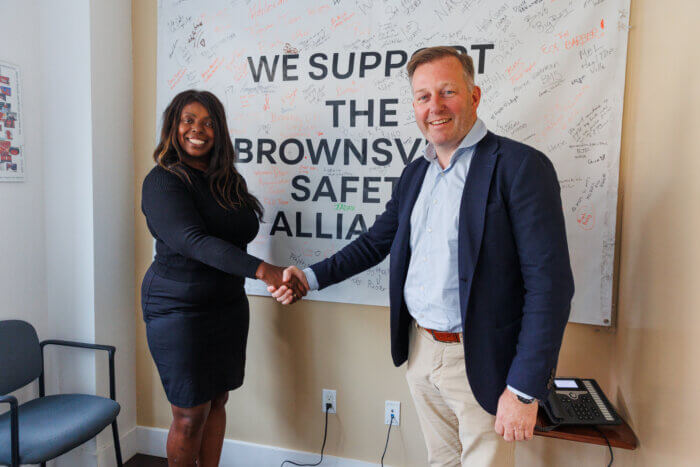
Most major crimes are down in Brownsville when compared to this time last year, per NYPD data. Shooting incidents have decreased 40% so far in 2023 when compared to the same time in 2022, and murder, grand larceny, and felony assault are all also down.
According to Walker, today’s meeting helps Brownsville learn from other leaders and spreads awareness on their work towards social justice.
“It gives an opportunity to share what our best practices are so that we can go or move towards a society that understands that public safety and social justice are not mutually exclusive,” Walker said. “They can work together and be successful in achieving a neighborhood that’s safe to live and grow and raise a family and one that does not terrorize the residents.”


